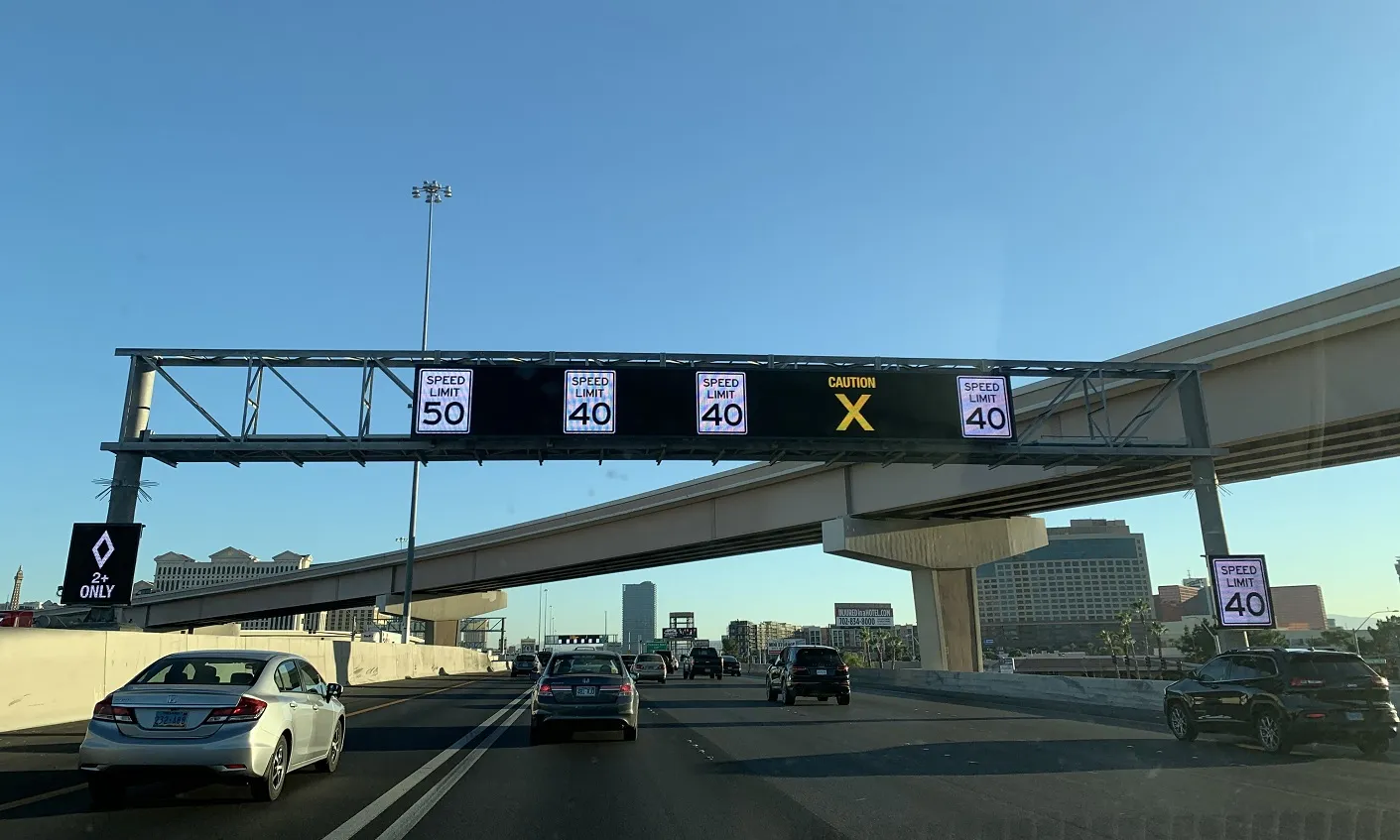
The Regional Transportation Commission of Southern Nevada (RTC) and its partners have received a $6 million grant to expand road safety technologies on Las Vegas freeways.
The funding comes from the US Department of Transportation’s Federal Highway Administration Advanced Transportation and Congestion Management Technologies Deployment programme.
The programme funds early deployments of technologies that can serve as national models.
US senator Catherine Cortez Masto of Nevada, says: “This grant will fund emerging technologies on freeways in Las Vegas to improve traffic management, prevent car accidents, and inform first responders of incidents as quickly as possible.”
Some of the technologies are already in place along Interstate 15 as part of the Integrated Safety Technology Corridor Project.
The new funding establishes a five-mile expansion in which the technologies will extend west of downtown Las Vegas between I-15 and Summerlin Parkway on US 95, a corridor that carries approximately 230,000 vehicles daily.
US 95 will include wrong-way sensors that alert drivers immediately if they’re travelling in the wrong direction and occupancy detection sensors in high-occupancy vehicle (HOV) lanes that collect data to reduce congestion and emissions.
The corridor will also have overhead signs that warn motorists about incidents, speed reduction and lane closures ahead to mitigate crashes resulting from sudden braking.
RTC CEO M.J. Maynard says: “This grant will enable us to work closely with our long-standing partners to expand our footprint in informing motorists, emergency responders and traffic technicians about incidents in real-time.”
Other partners involved in the project include the Nevada Department of Transportation, Nevada Highway Patrol, University of Nevada and Waycare.








